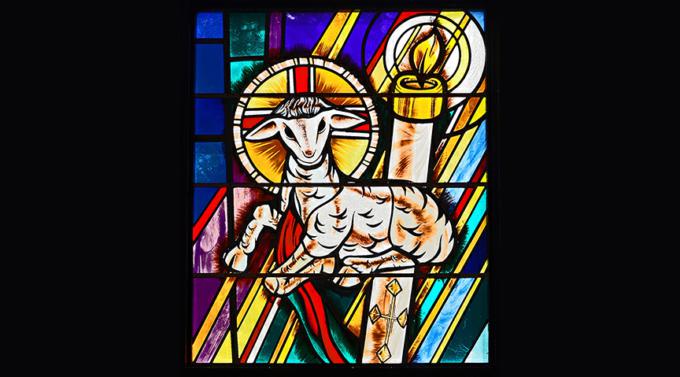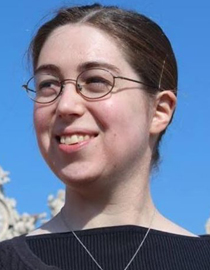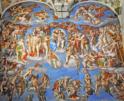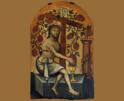
Faith
Prior to the new translation of the Mass in 2012, the bees were left out of the English-language translation of the "Exsultet," which is why they might not be an obvious Easter motif for those of us Catholics who grew up after the liturgical changes of the Second Vatican Council but prior to the new translation.

Cooper
Q: In my parish, we have an antique candle holder for the paschal candle. The design on the candle stand looks like it has some sort of insect, and so my six-year-old asked me why there were "bugs on the Paschal candle." Any thoughts? (Newburgh, NY)
A: My guess is that the "bugs on the paschal candle" were probably meant to be bees.
The liturgy for the Mass of the Easter Vigil contains a number of striking elements, such as the blessing of the Easter fire and the lighting of the new paschal candle. One of the most notable prayers unique to the Easter Vigil is an ancient hymn called the "Exsultet."
Ordinarily sung by the deacon -- or, in the absence of a deacon, a priest or if necessary a lay cantor -- on the surface, the "Exsultet" is a song of thanksgiving and praise for the newly lit paschal candle. But of course, this prayer actually goes much deeper, as the joy found in the paschal candle is actually a sign of the joy we find in the resurrected Christ, who brings light out of darkness.
In our current version of the prayer, there are two lines which reference the bees that produced the wax for the candle:
"On this, your night of grace, O holy Father, accept this candle, a solemn offering, the work of bees and of your servants' hands, an evening sacrifice of praise, this gift from your most holy Church."
And:
"But now we know the praises of this pillar, which glowing fire ignites for God's honor, a fire into many flames divided, yet never dimmed by sharing of its light, for it is fed by melting wax, drawn out by mother bees to build a torch so precious."
Prior to the new translation of the Mass in 2012, the bees were left out of the English-language translation of the "Exsultet," which is why they might not be an obvious Easter motif for those of us Catholics who grew up after the liturgical changes of the Second Vatican Council but prior to the new translation. However, there seems to have been a more lively popular appreciation for "mother bee" prior to Vatican II. So it makes sense that a paschal candle stand from that era would be decorated with a bee design.
Because of their mention in our liturgy, I personally think that bees are a beautiful symbol of Easter. And my own hope is that bees on Easter decorations make more of a comeback!
Q: When I was a kid, I thought Lent ended on Palm Sunday. Later in life, I was told Lent ended on Good Friday. A priest recently said in a homily though, that Lent actually and officially ends on Holy Thursday. Could you clarify? (Indiana)
A: Your priest is correct -- Lent technically ends with the Mass of the Lord's Supper on Holy Thursday evening.
The Mass of the Lord's Supper on the night of Holy Thursday begins the Easter "Triduum," a word which roughly translated means "three days." The Triduum is essentially its own mini liturgical season, being neither Lent nor the Easter season, but a time when we as a church are laser-focused on the events of Christ's passion, death and resurrection. The Triduum begins with the Mass of the Lord's Supper, and continues through the liturgical services of Good Friday, the Easter Vigil on Holy Saturday and morning Mass on Easter Sunday. The Triduum officially concludes with Evening Prayer (Vespers) for Easter Sunday in the Liturgy of the Hours.
There are a number of "clues" in the Triduum liturgies that tell us we are no longer in Lent. For example, at Mass on Holy Thursday evening, the priest wears white vestments instead of the Lenten purple; and the Mass of the Lord's Supper includes the singing of the "Gloria," and otherwise takes on a joyful tone rather than a penitential one.
- Canonist Jenna Marie Cooper is a consecrated virgin, a practicing canon lawyer, and columnist for OSV News.
Comments
Comments Policy
Recent articles in the Faith & Family section
-
The kingdom of ChristJaymie Stuart Wolfe
-
Pilgrims of hope -- Holy Year of 2025Father Robert M. O’Grady
-
Honor Mothers at Home and In the MissionsMaureen Crowley Heil
-
On the vineScott Hahn
-
What is the church's position on the treatment of animals?Jenna Marie Cooper


















